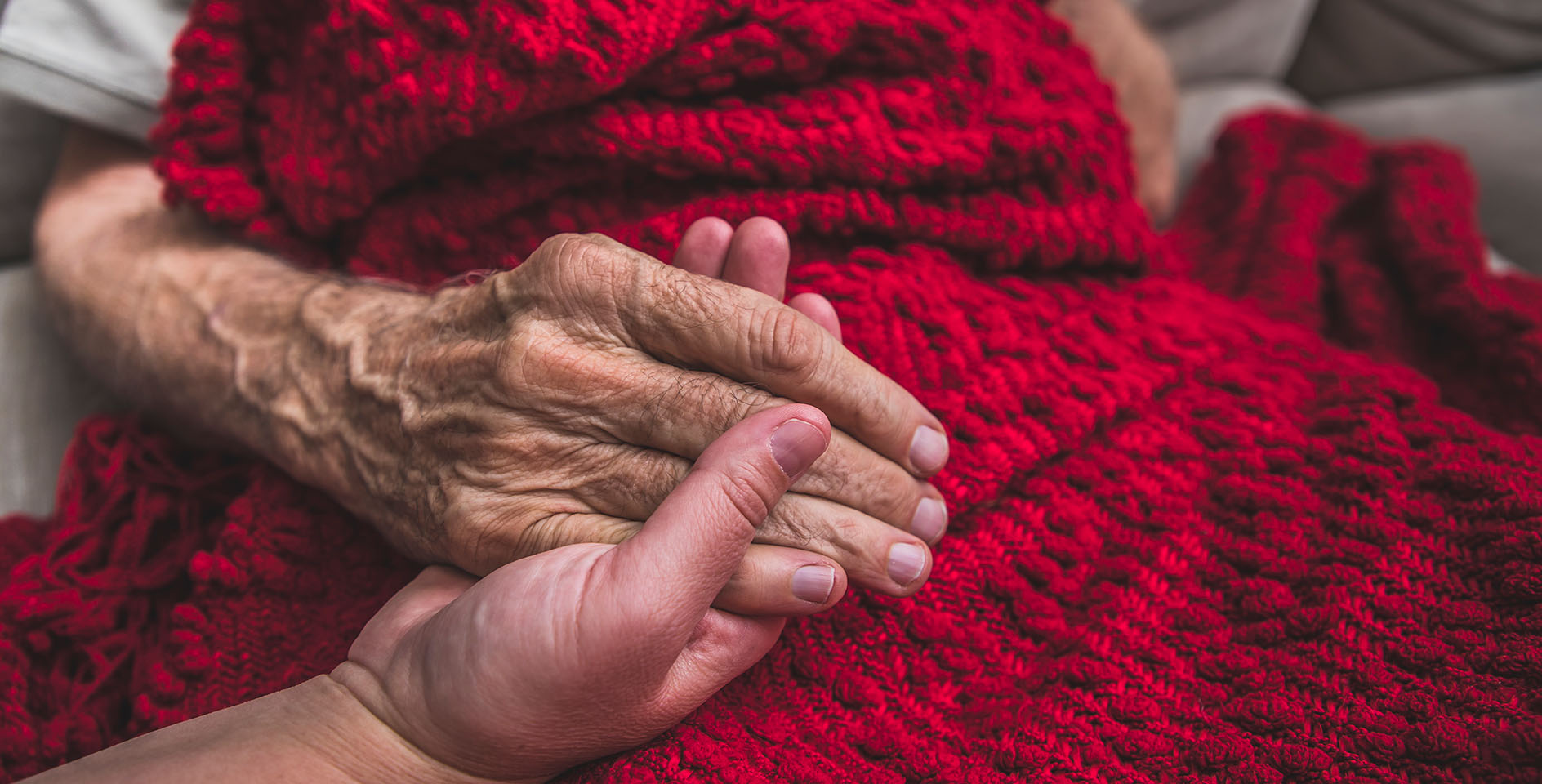How we face death, whether in fear or in hope, is a reflection of how we have lived. Back in February, I was asked by an elderly church member to visit her neighbor who was dying. The neighbor was in her 70s, and hospice began visiting to help her in her final days. This was the end. I was told the woman was a believer in Jesus, but had not been to church in some time and didn’t have a pastor. Of course, I was happy to go visit her.
As I drove up to her little mobile home to see her, I was reminded of Ecclesiastes 7:2, “It is better to go to a house of mourning than to go to a house of feasting, since that is the end of all mankind, and the living should take it to heart.”
Will we face death’s reality?
Visiting with this woman was a very powerful experience for me. Her mobile home was small and crowded with items collected over a lifetime. I was welcomed in by a care nurse who was there to tend to her needs. He pointed me down the short hallway, and I could hear the television blaring with sounds from an old game show rerun. As I walked into the room, she was sitting up in bed halfway. Medical supplies, blankets, and other items took up the space around her. She heard I was coming from the neighbor who called me, so when I introduced myself, she was prepared.
In these situations, you don’t always know what to expect. Sometimes, people don’t want to see a pastor that they’ve never met before. They’re angry about dying. They know what the visit means. And their fear can turn into dismissal or lead them to lash out. The reaction can range from mild politeness to indifference to rudeness to anger. So, the short walk down the hall found me bracing myself for the possibilities of the exchange.
When it comes to dying in the American context — one that seeks to hold on to this life with every drop of strength we have — we often reflect the first lines of the Dylan Thomas poem,
“Do not go gentle into that good night,
Old age should burn and rave at close of day;
Rage, rage against the dying of the light.”
We rightly see death as the final act of this physical life. As we fear it, we may try to put it out of our minds, loudly declaring all talk of it as unnecessarily morbid. Or, we fight it with everything we can muster, viewing the surrender to death’s inevitability as some kind of defeat. We are taught to uphold youth as the ideal, to do all we can to push away the effects of aging, and to see those who are close to dying as those who have little to contribute to our lives of production and self-fulfillment. The dying are to be cared for as an act of compassion from the living, but that final act of life giving way to death is often shunned by those of us who don’t want to face what is coming. This fear is described in Hebrews 2:14-15 as being manufactured by the devil, who holds the power of death and keeps all people in slavery to the fear of death.
Met by God’s grace
So, I didn’t quite know what I would face as I walked down the dark hall to meet this woman who lay dying. Would she welcome my words and prayers? Would she be raging against the death closing in? I prayed that God would help me prepare her for her death and the journey to eternal life.
In my visits with her over the next 10 days or so, I encountered a remarkable manifestation of God’s grace. After my first visit, I went out to my car and tweeted out some thoughts of reflection. I don’t normally do this after a time of ministry, but tears filled my eyes as I met with her, and I sensed the profound presence of God already there, helping prepare her for her final journey. I wanted to remember the holy:
I just sat with a dying woman. She was going down a list making calls to old friends to say goodbye. We talked about life, hurts, and her faith in Jesus and forgiveness. She said God is a fisherman and He caught her, and even though she tried to swim away, He reels her back in.
She was very peaceful. As we talked, she would cry at times. She isn’t a church member. A lady in our church knew her and asked if I could visit with her. We held hands and prayed. I read Scripture to her. As we talked about God’s love for her, tears fell from her eyes. Grace.
The doctors only give her a few days. They sent her home to die. She says she gets scared sometimes, but then she prays and the peace returns. As she is calling her friends all across the country to tell them that she’s dying, they cry, but she says, “Let’s share some memories together.”
Before I left, I hugged her. She thanked me for stopping by, but really, I was the one who was grateful. Her body is failing but her mind and spirit are clear. It was an honor to sit with her and hear her talk about her life. I told her I would see her soon on the other side.
It’s the most real thing there is, to sit with someone dying. Just to be with them, with their mind firing and laughter and tears and words and stories and to know that in just a short time the flicker of life will be gone. But, we hope in the God who raises the dead.
I went back to visit her a couple more times. She was so grateful. We talked and prayed, and she told me stories. She said she didn’t want to die, but, as I mentioned in my tweet, that Jesus was a fisherman and though she tried to wiggle off his hook, he caught her and was now reeling her in. She decided to pass that on to the pastor who would do her funeral that was already planned by her extended family back home in the Midwest. She never married and had no children, but she spoke of her nieces and nephews and the times they had together years ago. She continued to work down the list of people to call to say her goodbyes and remember the good times they’d had together. I sat there with her while she had one call and heard her congested laughter through the fluid building up in her lungs.
I told her that these days were a great gift to her and that she was dying well. She cried a lot, but would immediately say that her hope was in Jesus. We talked about how Jesus raises the dead and how she would live again. She believed that. With each visit, she was being prepared for burial and her spirit was growing in hope for the resurrection to come.
I visited her the last time the night before she died. Her physical light was dying, but an inner light was emerging. The list of friends to call was put away. All the calls had been made. She had trouble talking now as the fluid filled her lungs and she couldn’t cough it out. But, she thanked me with tears welling up in her eyes. She thanked me for being there with her, for talking with her and praying with her. She said again that Jesus caught her and was bringing her home.
This woman who had not been to church in many years was experiencing God’s presence and hope in a profound way as she lay dying, even as Jesus overcame her fear. The full text of Hebrews 2:14-15 is, “Now since the children have flesh and blood, He [Jesus] too shared in their humanity, so that by His death He might destroy him who holds the power of death, that is, the devil, and free those who all their lives were held in slavery by their fear of death.” I saw that happening before my eyes.
As they lay dying
“As I Lay Dying” is a Southern gothic novel by William Faulkner that I haven’t read, but like most Southerners (especially if you are from Mississippi, as I am) do with Faulkner, I have pretended to know about it. The title comes from a line in Homer’s “Odyssey,” Book XI. Odysseus travels to the Underworld and meets Agamémnon, who tells how he was killed by the hands of his adulterous wife who would not close his eyes as he lay dying: “As I lay dying, the woman with the dog’s eyes would not close my eyes as I descended into Hades.”
Now, Agamemnon is angry about the betrayal of his wife. He’s descended into hell, but he also expresses anger over her not even closing his eyes in death. Not only did she kill him, but she didn’t even give him the courtesy of helping him die the right way. Faulkner’s use of this line for the title of the book — that I haven’t read — has served as a bit of a warning to me that when death comes (and it’s coming for us all), running from it doesn’t help. And not helping someone die well with mercy, grace, and care by ministering to them in Jesus’ name doesn’t really empower them to rage against the dying light as though they themselves had power over death. This approach of denial can often just distance them from the hope they really need.
But, as we now encounter Holy Week culminating in Good Friday and Easter Sunday, we are reminded with force that Jesus, through dying, defeated the power of death and the grave. He rose from the empty tomb and gives new life to all who believe. We need neither run from death in fear nor fight it in our own strength. Instead, we can persevere in hope as long as God gives us breath and then prepare for the new life to come. That isn’t a morbid surrender to death in defeat, but rather, it is true hope in the one who values and sanctifies our lives. He is with us all the way to death, and then carries us beyond into eternity and the resurrection of the dead.
I now realize that as I was helping my friend prepare to meet with Jesus upon death, she was helping me meet with him now. He was there with her as she lay dying, and by being with her in her suffering and figuratively helping her to close her eyes in death, my eyes were more fully opened to the power of the resurrection of Jesus for this life — and for the life to come.










